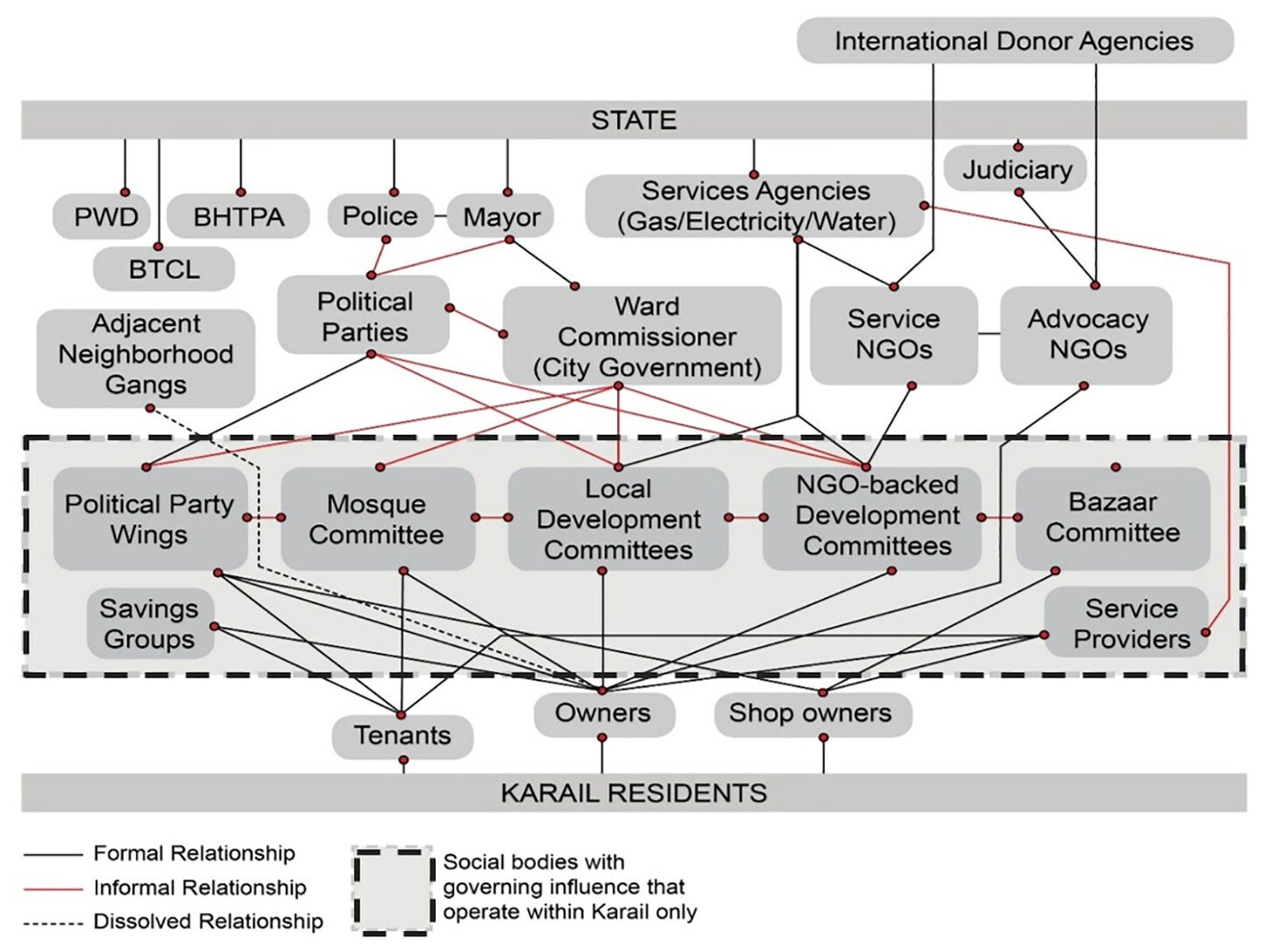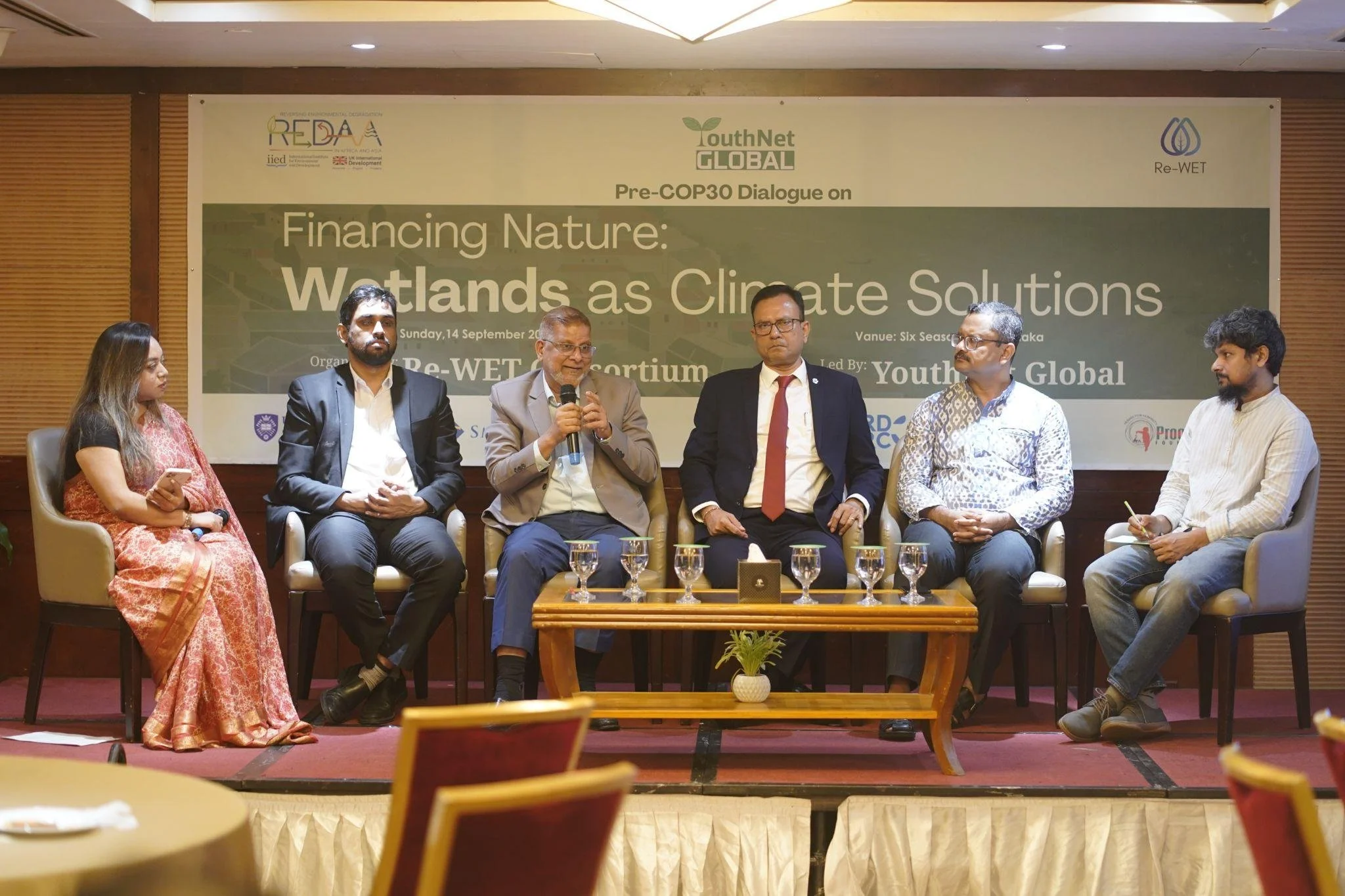
ReWET Reports
-

Primary Economic Analysis Report
This report provides an overall summary of the primary economic analysis conducted on the lake between Gulshan and Korail using a Total Ecosystem Services Valuation method, that identifies a potential out of BDT 10,000 Crore economic value that can be generated from the project.
-

Multiscalar Mapping Report of Urban Wetlands: Focus on GB Lake
This report combines the urban mapping at multiple scales to show Dhaka’s geomorphological situation, the wetland loss over the years and a detailed mapping of the case study area, identifying point source pollution and edge conditions.
-

Stocktaking Report of Urban Wetlands, Current Status, Restoration Potential and Livelihood Linkages
This report provides a comprehensive overview of the current knowledge of urban wetlands globally and locally in Dhaka, and links across multiple disciplines to understand urban wetlands.
-
GB Lake Water Health - Current Status and Future Directions 2024 Report
This report combines water sample test data for pollutants in the GB lake water with comparative analysis, as well as provides recommendations for how to use nature-based interventions to restore lake health.
-

Stakeholder Analysis Report
This report analyses the current level of services provided in Korail and provides a mapping of the interlinakges with sorrounding areas, the key stakeholders in the project as well as provides recommendations for effective engagement and potential risks.
-

Korail Restores the Wetland: Locally-led Action Charter and Policy Recommendations
This report, from the co-production workshops done with the urban farmers and dwellers of Korail slum, articulates their charter to protect the lake, demand from the government and policy recommendations.
-
Report on Consultation with Experts and Partners
This report summarises the findings based on consultations with landscape and agriecology experts (both formally trained and indigenous) about the viability of ReWET project and highlights their recommendations.
-

Report on Knowledge Exchange Workshop with Experts and Local Participants
This report showcases the findings of knowledge exchange workshops between the experts and local dwellers/urban farmers. It lists some key water treatment and agroecological typologies.
-

Developing the ReWET Knowledge Exchange Network (KEN)
This report presents the ReWET Knowledge Exchange Network as a transnational platform reimagining urban wetlands through Global South perspectives, centering epistemic justice, community stewardship, and relational approaches to environmental knowledge. here
-

Website Analytics and Communication Recommendations
This report outlines strategic recommendations to strengthen ReWET’s digital presence and storytelling, offering analytics-driven insights and communication guidelines to amplify its mission of community-led urban wetland restoration.
-

National Policy Dialogue: Developing the Policy Guidance Framework for Restoring Wetlands
This report develops a draft Policy Guidance Framework for Restoring Wetlands (PGFReWET) in Dhaka, proposing a multi-level, justice-driven roadmap that repositions wetlands as vital urban infrastructure through nature-based solutions, community co-management, and legal reform.
-

National Stakeholder Dialogue: Developing ReWET Collective Action Framework (CAF)
This report presents the outcomes of ReWET’s National Stakeholder Dialogue in Dhaka, culminating in a Collective Action Framework that outlines seven justice-centered strategies for urban wetland restoration through community stewardship, institutional accountability, and ecological co-production.
-

Conceptual Site-Specific Restoration Tool Co-Development
This report develops a conceptual, community-led restoration tool for Dhaka’s Korail Lake, co-designed with residents to integrate indigenous agroecological knowledge, floating infrastructure, and decentralized waste systems into a vision for equitable urban wetland regeneration.
-

ReWET - Participatory planning workshops with community members
This report illustrates a participatory approach to restoring Korail Lake, showcasing community-led planning, ecological design, and sustainable water management strategies that integrate local knowledge, organic farming, and socio-environmental resilience.
-

The Art of Advocacy: Outreach, Campaign & Movement Building
This report develops a youth-led advocacy initiative empowering Korail community members to champion wetland restoration through climate justice, strategic storytelling, and rights-based approaches linking ecological resilience with urban environmental justice.
-

GB Lake Water Health - Current Status and Future Directions 2025 Report
A comprehensive assessment of Korail–Gulshan Baridhara Lake’s water quality reveals seasonal pollution trends, ecological risks, and clear community-driven pathways for restoring this critical urban wetland, with actionable recommendations.
-

Pre-COP30 Dialogue Financing Nature: Wetlands as Climate Solutions
A national Pre-COP30 dialogue convened government, youth, financial leaders, and global partners to position wetlands as climate-critical infrastructure and chart a finance roadmap for Bangladesh’s wetland-centered, locally led adaptation agenda.

